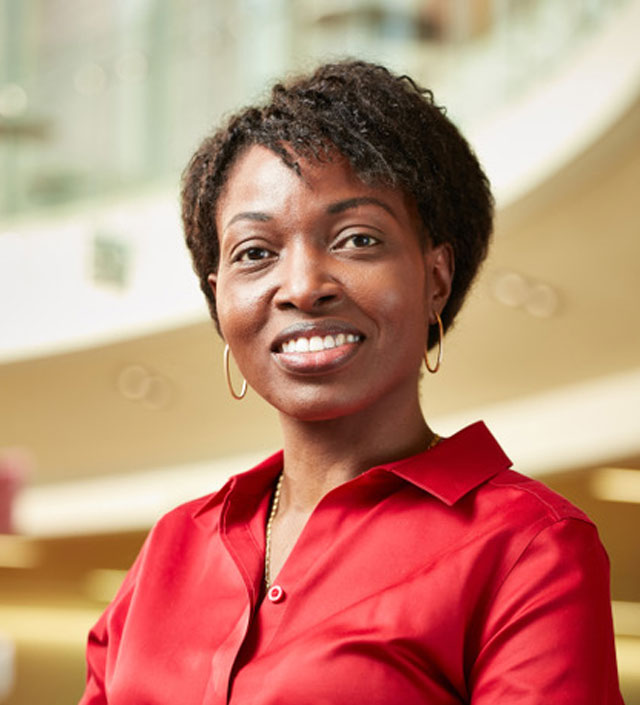More than half of retired women (56%) are struggling financially, according to a new survey from Edward Jones and Age Wave.
The 56% say they’ve had to find housemates, trade for economy cars or make other lifestyle adjustments, while only 41% of men reported needing to downsize their expectations.
“They are behind,” Lena Haas said of the women among about 12,000 Americans and Canadians surveyed.
“They need our help in terms of understanding what they need to do, getting the education, gaining the confidence and choosing the options available to them,” said Haas, head of Wealth Management Advice and Solutions at Edward Jones. “I feel really, really strongly about this.”
“Some of this is not surprising,” Haas said of the study that Edward Jones and Age Wave recently published in a report, “Resilient Choices: Trade-Offs, Adjustments and Course Corrections to Thrive in Retirement.”
Women earn less than men, so they have less to invest, she said. They tend to live longer, and they often take time away from careers to care for children and parents, among other factors.
“As a result, they’re less prepared,” Haas said.
One pre-retiree (older than 50) described her husband of 32 years unexpectedly divorcing her. She found a better-paying job with a good 401(k) match, took in a housemate to share expenses, downsized her car and cut her spending to raise her retirement nest egg from $237,000 to almost $992,000. And, “I joined a dating site.”
The average retirement costs $1 million, twice as much as a home and college education combined, Edward Jones estimates.
But, “not everyone has a retirement account, and those that do aren’t deep,” said Haas, citing median in retirement savings of only $164,000 for baby boomers ages 65 to 74.
Haas spoke about the study during a virtual event with Age Wave founder and gerontologist Ken Dychtwald. Age Wave partnered with Edward Jones and Harris Poll to conduct the study.
Some ‘c’ and ‘f’ words
Three in every four retirees have navigated what the study team calls “cannonball events,” such as widowhood or cancer, that derailed their plan. Those and less major “curveballs” have caused them to “course correct,” they say.
“The retirement journey is not a straight line,” Haas said. “You don’t plan it once and everything falls in place.”
Women were hit by cannonballs 81% of the time, compared with 69% for men. For almost 30%, their first cannonball was being forced out of the workforce unexpectedly.
During the survey, the biggest curveball for most participants – 63% – was the rising prices of goods and services: inflation. Three-quarters of the Americans in the survey have cut back on spending as a result.
But, 30% of those who said they’ve course-corrected by reducing their everyday said that living less largely has significantly improved their lives.
The survey asked retirees what they did or would do to course correct from cannonballs and curveballs.
Words that “jumped off the page” for the team were “frugality” and “freedom,” Haas and Dychtwald said.
“Not too long ago, frugal meant thrifty and had a negative connotation. What we heard people say in our focus groups was that the new frugality is about being smart, responsible and intentional.”
— Lena Haas, Edward Jones
“Not too long ago, frugal meant thrifty and had a negative connotation,” Haas said. “What we heard people say in our focus groups was that the new frugality is about being smart, responsible and intentional.”
Three in four participants had updated or were updating their financial strategies with their advisors, they said.
That’s the silver lining,” Haas said.
The course corrections weren’t just financial.
“Retirement is, of course, not a new idea, but there’s a whole new generation of retirees and pre-retirees that … are thinking about it and express their hopes and dreams in so different ways from their moms and dads,” she said.
Former generations focused on maximum wealth to save for retirement, she said.
“What we saw in focus groups is people … talk about the concept of freedom, over and over again,” Haas said. “Retirement is not seen as what their parents might have thought of as leisure and time to enjoy your wealth. Retirement is seen as a new chapter to enjoy some new wider range of activities and opportunities, and also some new challenges.”
One in four in the survey live with diabetes. One started a health regimen, lost 30 pounds and reduced her out-of-pocket medical expenses 23% … albeit she may have added three to 10 years of life that she’ll need to fund in retirement.
A well-invested 62-year-old Atlanta couple decided to phase into retirement by the woman reducing her weekly hours to 30 with benefits while the man went into consulting work full-time. They cobbled together an estimated $372,000 more for their nest egg by growing their investments, keeping employer insurance for three more years and adding earnings to their Social Security benefit calculations.
Of the Americans in the study, 47% started Social Security before age 65. But only 31% of that group were glad they chose the lifelong reduced monthly benefit to do so. The two top things participants say they did or will do as retirees seems paradoxical: Spending more time with family, and spending less time with toxic family and friends, Dychtwald said.
Women reported more physical, mental and social benefit from volunteer work in retirement.
Still, the survey asked the retirees what advice they give to others. Foremost was: “Start saving earlier and more,” Dychtwald said.
Advice for advisors
So, Dychtwald said, financial advisor workshops near retirement are good, but young people need those workshops as soon as they get their first paychecks.
Additional Reading: Dychtwald: 5 Habits of Successful Retirees
Survey participants say they need financial advisers to “widen their tool boxes, and they want to speak to advisors who are holistic,” Dychtwald said.
“Whatever the era was where we had stock brokers or insurance agents, and people just focused on finance exclusively, they now want holistic help,” he said.
Haas said that means redefining success in retirement as active engagement across four pillars: health, family, purpose and finance.
“People realize their retirement journey isn’t static,” she said. “They’re ready to make tradeoffs” to achieve whatever it is that fulfills them in retirement.
Financial advisors don’t have playbook for helping clients to adjust to retirement, because that fulfillment is unique to each client.
“Very few psychologists have focused on maturity, surprisingly,” Dychtwald said. He noted that authors and educators Carl Jung and Erik Erikson wrote of maturity as a time of ascent, not descent, and a time of giving to society, not taking.
Unlike past generations, the baby boomers retiring now changed majors in college, divorced more often than any prior generation and had to change jobs to advance in their careers. As a result, they’re receptive to looking at new ways to retire and course-correct to get them there.
“There’s more room for older people in the workforce,” even to age 90 despite age discrimination, because the unemployment rate has fallen to a record low in recent years, Dychtwald said. “Employers are being more welcoming.”
He suggests pre-retirees practice living on their anticipated retirement budget, to see if it will meet their comfort for the long-term, before they decide whether to work a little longer or segue with part-time work.
Haas suggests that financial advisors do “scenario planning” with clients to calculate how prepared they may be for the what-ifs of cannonballs and curveballs.
One data point that stands out for Haas is that women were 29% less likely to adjust their investment plan and less likely to have an advisor.
“I thought women are just not open to such changes. But no,” Haas said of the study’s accompanying interviews. “Women are more likely than men to make course corrections, related to their lifestyle.”
More than 90% of women changed their health regimes and relationships with family in retirement, she said the study found.
“I want us to be there to see how we can help make women more educated, make women more confident, and provide that advice they need to make good choices for a successful retirement,” Haas said.
Linda Hildebrand is a longtime newspaper editor and consumer reporter.







